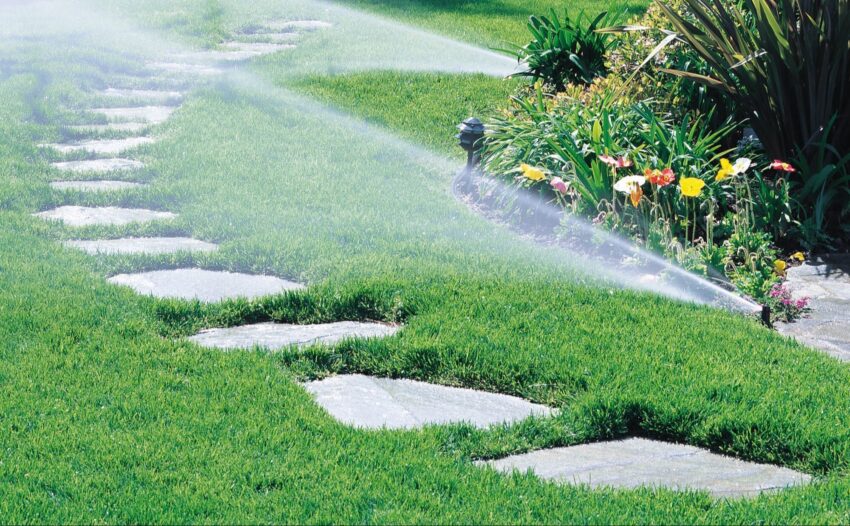Table of Contents
In the pursuit of lush landscapes and thriving gardens, homeowners and commercial property managers often turn to the expertise of professional irrigation contractor. These specialists play a critical role in designing, installing, and maintaining efficient irrigation systems that promote healthy plant growth while conserving water. If you’re considering hiring an irrigation contractor, here’s everything you need to know to ensure your green spaces are not only beautiful but sustainable.
Understanding the Role of an Irrigation Contractor
Irrigation contractors are professionals skilled in the art and science of watering systems. Their work involves assessing the specific water needs of a landscape, designing a system that efficiently meets those needs, and installing and maintaining that system to ensure its long-term effectiveness and efficiency.
The Benefits of Hiring a Professional Irrigation Contractor
1. Expertise in System Design: Professional irrigation contractors have the training and experience to design systems that maximize water efficiency and coverage. They consider factors such as water pressure, the watering needs of specific plants, soil conditions, and weather patterns. This expertise helps in creating a system that saves water and reduces runoff, thereby not only saving you money but also protecting the environment.
2. Quality Installation: Proper installation of an irrigation system is crucial to its success and longevity. Contractors use high-quality materials and ensure that every component, from sprinkler heads to timers and sensors, is installed correctly and strategically. This reduces common issues such as leaks, overwatering, or uneven watering.
3. Regular Maintenance and Support: An irrigation system requires ongoing maintenance to operate at peak efficiency. This includes seasonal adjustments, repairs, and upgrades. An irrigation contractor can provide regular maintenance services, which will extend the lifespan of your irrigation system and help avoid costly repairs due to neglect.
4. Compliance and Permits: Depending on your location, the installation of an irrigation system may require specific permits and adherence to local water use regulations. Experienced contractors are familiar with these requirements and can ensure that your system complies with all local codes and regulations.
5. Water Conservation: A professional can install water-saving devices like rain sensors, drip irrigation systems, and smart controllers that adjust watering based on weather conditions. Such technology not only conserves water but also reduces your utility bills.
How to Choose the Right Irrigation Contractor
1. Check Credentials: Ensure the contractor is licensed and insured. This protects you in case of accidents or damage to your property during the installation process.
2. Experience and Reputation: Look for contractors with extensive experience and good reviews. Experienced contractors will be able to handle a wide range of scenarios and will likely provide higher quality work.
3. Detailed Project Proposal: A reliable contractor should provide a detailed proposal that outlines the scope of work, pricing, and timeline. This proposal should include all aspects of the irrigation system design and installation process.
4. Warranty and Service Agreements: Consider contractors who offer a warranty on their work and components. This is a sign of their confidence in the quality of their work. Also, check if they provide ongoing maintenance services as part of their package.
5. Conservation Focused: Given the increasing importance of sustainability, look for a contractor who emphasizes water conservation and offers innovative solutions and technologies that reduce water waste.
What to Expect During the Installation Process
The installation process begins with an on-site consultation where the contractor assesses your landscape’s specific needs. They will consider the type and size of the area, soil conditions, types of plantings, and exposure to sun and shade. After this assessment, the contractor will design the system and present a proposal.
Once approved, the installation process can begin. This typically involves trenching to lay pipes, installing sprinkler heads and sensors, and setting up the control system. After installation, the contractor should test the system thoroughly to ensure everything works as it should.
Finally, the contractor will walk you through the system, showing you how to operate it and discuss any maintenance and care instructions.
Conclusion
Investing in a professional irrigation contractor can transform your landscaping efforts, ensuring your plants receive the right amount of water at the right time, all while conserving water and reducing your environmental footprint. By selecting a skilled contractor and staying informed about the process, you can ensure that your irrigation system serves your landscape efficiently for years to come. Whether you’re a residential homeowner or a commercial property manager, a professional irrigation system is a smart investment in the health and beauty of your property.

